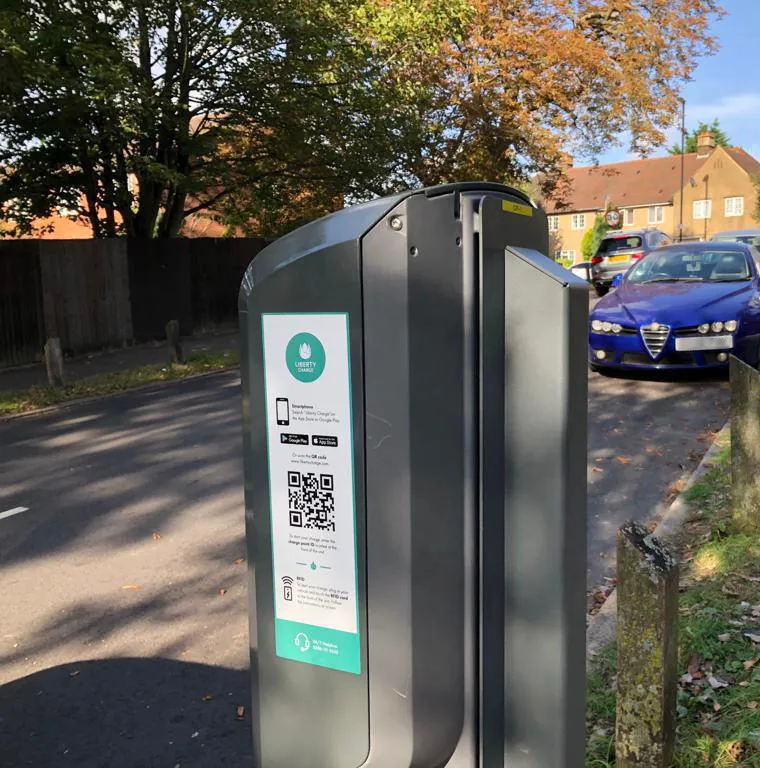Electric vehicles (EVs) have gained significant attention over the last few years from various European governments as they look to promote the deployment of EV charging infrastructure. According to new analysis from Frost & Sullivan, contained in 'Strategic Analysis of the European EV Charging Station Infrastructure' there are strong indicators that the EV market will grow from less than 10,000 public charging points in 2010 to close to two million public charging points by 2017. Some three per cent of thi
May 16, 2012
Read time: 3 mins
Electric vehicles (EVs) have gained significant attention over the last few years from various European governments as they look to promote the deployment of EV charging infrastructure. According to new analysis from Frost & Sullivan, contained in ‘Strategic Analysis of the European EV Charging Station Infrastructure’ there are strong indicators that the EV market will grow from less than 10,000 public charging points in 2010 to close to two million public charging points by 2017. Some three per cent of this will be accounted for by DC-DC rapid and inductive charging concepts.
“European governments are expected to budget about €700 million over the next seven years for charging stations,” notes Frost & Sullivan research analyst Sanketh Gudur. “This will be one of the main drivers behind the exponential growth in public charging infrastructure for EVs.”
The approximate investment over the next seven years is likely to be about €5 billion for building EV infrastructure in Europe in relation to charging. The ratio of the number of cars to charging stations in Europe stands currently at 2.5, dropping to 1.8 by 2017. The rate of growth of public charging infrastructure in Europe is very high, principally due to local government initiatives in different countries.
“Local governments are granting customers a variety of incentives to purchase an EV,” remarks Gudur. “Such incentives include discounts on the purchase price, tax reduction or exemption, and other advantages such as no congestion charge, free parking, and use of exclusive lanes, among others.”
There are many other initiatives such as initiating infrastructure deployment, which can be financed by governments. For example, the French Government has allocated €400 million for infrastructure. Other approaches include playing a role as a partner in different projects, such as the Portuguese Government partnering with2453 Renault-838 Nissan. Providing funding to private projects for infrastructure installation is another method being adopted by governments to encourage EV adoption.
Slow charging is the most widely available option at present. This method requires six to eight hours for a vehicle to fully charge (80 per cent) and represents an infrastructure problem.
“Manufacturing and installation of a single charging station can be as high as €6,000, implying the need for sizeable investments to equip an entire city with charging stations,” states Gudur. “Moreover, 6 to 8 hours of slow charging means more charging stations are required to ensure availability at all times.”
Fast charging will help resolve this issue. However, at the moment, this method is expensive and not widely available. In addition, it is presumed not to be entirely safe for users to handle.
“The adoption of concepts such as DC-DC fast charging is critical to ensure the dramatic decrease of charging duration,” concludes Gudur. “A DC-DC charging station may eventually produce its own energy supply from renewable sources, offering an added advantage.”
“European governments are expected to budget about €700 million over the next seven years for charging stations,” notes Frost & Sullivan research analyst Sanketh Gudur. “This will be one of the main drivers behind the exponential growth in public charging infrastructure for EVs.”
The approximate investment over the next seven years is likely to be about €5 billion for building EV infrastructure in Europe in relation to charging. The ratio of the number of cars to charging stations in Europe stands currently at 2.5, dropping to 1.8 by 2017. The rate of growth of public charging infrastructure in Europe is very high, principally due to local government initiatives in different countries.
“Local governments are granting customers a variety of incentives to purchase an EV,” remarks Gudur. “Such incentives include discounts on the purchase price, tax reduction or exemption, and other advantages such as no congestion charge, free parking, and use of exclusive lanes, among others.”
There are many other initiatives such as initiating infrastructure deployment, which can be financed by governments. For example, the French Government has allocated €400 million for infrastructure. Other approaches include playing a role as a partner in different projects, such as the Portuguese Government partnering with
Slow charging is the most widely available option at present. This method requires six to eight hours for a vehicle to fully charge (80 per cent) and represents an infrastructure problem.
“Manufacturing and installation of a single charging station can be as high as €6,000, implying the need for sizeable investments to equip an entire city with charging stations,” states Gudur. “Moreover, 6 to 8 hours of slow charging means more charging stations are required to ensure availability at all times.”
Fast charging will help resolve this issue. However, at the moment, this method is expensive and not widely available. In addition, it is presumed not to be entirely safe for users to handle.
“The adoption of concepts such as DC-DC fast charging is critical to ensure the dramatic decrease of charging duration,” concludes Gudur. “A DC-DC charging station may eventually produce its own energy supply from renewable sources, offering an added advantage.”







